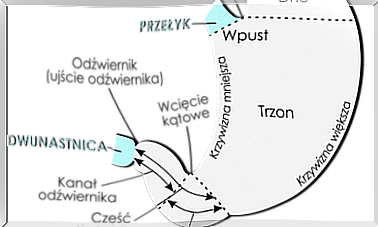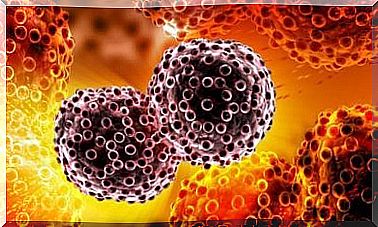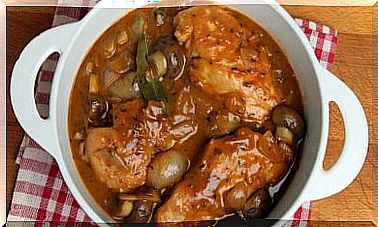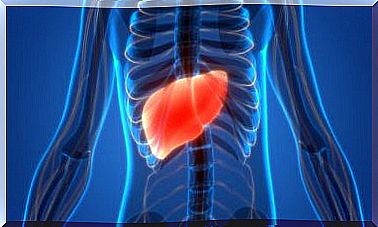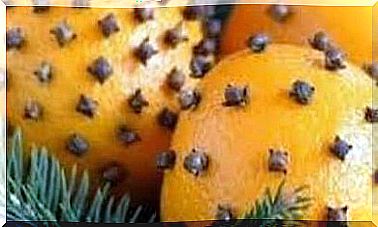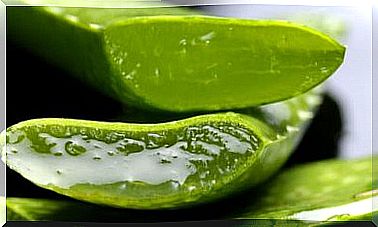Vegan Meat Substitutes: Which One Should You Choose?
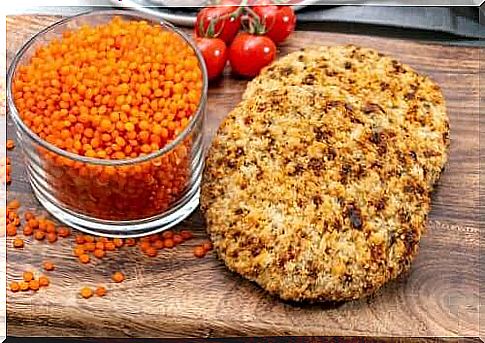
Various vegan meat substitutes and other similar products are available on the market to prevent deficiencies and possible disorders in people following a meat-free diet.
What’s more, they respond to the needs of the growing vegetarian and vegan community in Western countries and are oriented towards healthy, balanced and appropriate nutrition.
Meat substitutes must meet certain requirements in terms of composition, nutritional value, taste and texture, and therefore should resemble meat. However, not all of these expectations are met. So which options are the best? Let’s take a look at them.
What are vegan meat substitutes?
According to experts, meat substitutes are similar to meat in terms of consistency, taste, appearance and nutritional values. However, they are made from products of plant origin.
These products appeared on the market as a result of the growing vegan community. There is no shortage of burgers or vegetable sausages based on cereals and other ingredients.
In some ways, they are superior to meat products. They contain less saturated fat and cholesterol and have fewer calories. Therefore, they are considered healthier.
Vegan meat substitutes available on the market
Various meat substitutes are available on the market today. They are usually based on vegetable proteins such as soybeans, gluten, nuts and pods. Do you want to try?
Legumes
Pods such as beans, lentils, chickpeas and soybeans are the main source of vegetable protein with meat-like properties. The Food and Agriculture Organization of the United Nations refers to them as “superfood” because of their nutritional value.
These products have different flavors and suit different recipes. Chickpeas and beans go well with the Mediterranean diet, and black and red beans with Mexican ones. Although their protein is not wholesome, they are a good source of fiber and minerals including iron and zinc.
Let’s take a look at the nutritional table of lentils:
- Calories : 352.
- Protein : 24.6 grams.
- Fat : 1.06 grams.
- Carbohydrates : 63.25 grams.
- Fiber : 10.7 grams.
- Iron : 6.51 milligrams – 72% of the RDA for women and 43% for men.
- Zinc : 3.27 milligrams.
They are very versatile in the kitchen and are well suited for:
- Vegetable stews.
- Salads.
- Casseroles.
- Soup.
- Hamburgers.
- Tacos.
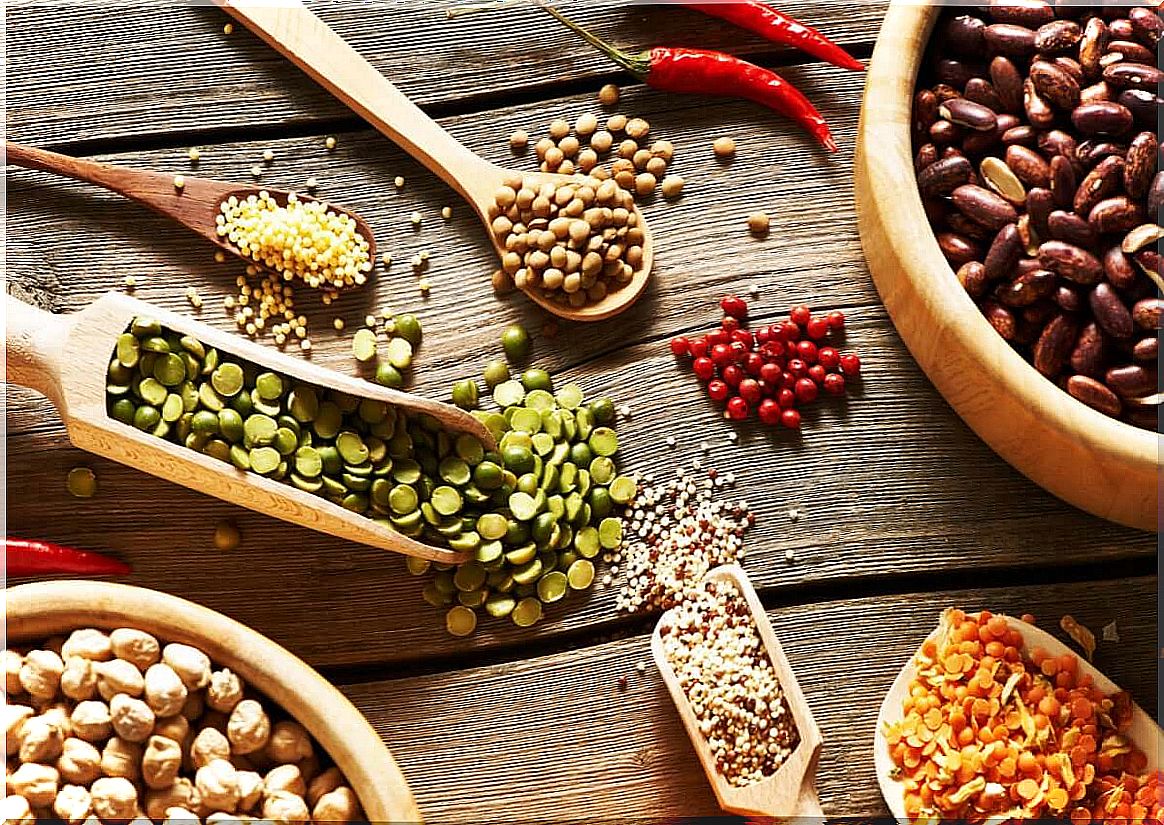
Tempeh
According to food technologists, tempeh is a product resulting from the fermentation of soybeans by the Rhizopus fungus. Whole grains are used in its production, so it maintains their structure.
One publication about the benefits of tempeh states that it stimulates the multiplication of bifidobacterium gut bacteria , which has a positive effect on health.
The USDA product table shows the nutritional benefits of 100g of this meat substitute. It is worth paying attention to the protein with high biological value, polyunsaturated fatty acids and the wealth of minerals.
- Calories : 192.
- Protein : 20.3 grams.
- Fat : 10.8 grams.
- Carbohydrates : 7.64 grams.
- Iron : 2.7 milligrams.
- Phosphorus : 266 milligrams.
- Potassium : 412 milligrams.
Tempeh can be served with cereals such as groats to enrich the amino acid mix. It also goes well with sauces, potatoes and salads.
Tofu
Tofu, or vegan cheese, is a classic ingredient in a meat-free diet. It is a tasteless soy product that goes well with many sauces, vegetables and grains that intensify its flavor.
Tofu is made by coagulating soy milk with calcium and magnesium salts. After undergoing the coagulation process, it is processed just like traditional cheese, which allows you to obtain a hard, semi-hard and soft variant.
The method of production affects the nutritional value. Some manufacturers fortify their products with calcium, iron, or magnesium, according to the USDA product table.
One 85-gram serving contains the following nutritional values:
- Calories : 70.
- Protein : 9 grams -18% DV.
- Fat : 2 grams – 3% of the DV.
- Carbohydrates : 3 grams – 1% DV.
- Fiber : 1 gram – 3% of the DV.
- Calcium : 100 milligrams – 10% of the DV.
- Iron : 2.8 milligrams – 16% of DV.
You can prepare them on the grill, in a pan or in the oven. It’s worth squeezing them out of the water first. You can fry them with vegetables or crush them and replace them with cheese or eggs.
Seitan
Seitan is a wheat protein known as gluten. In meatless diets, it is called vegetable meat. It is obtained from wheat flour, from which the starch is rinsed.
It has a texture similar to meat protein and is flavored with spices such as soy sauce. You can buy it in pieces or slices. As stated in the food table, a 90-gram serving contains:
- Calories : 108.
- Carbohydrates : 4.8 grams.
- Proteins : 20 grams.
- Fat : 1.2 grams.
- Fiber : 1.2 grams.
- Iron : 8 milligrams – 100% of the recommended daily allowance for men and 44% for women.
Seitan can be prepared in a pan, breaded, fried, added to stews, chops and other recipes. It tastes similar to mushrooms, but resembles chicken when seasoned. However, people with gluten intolerance should exclude it from the diet.
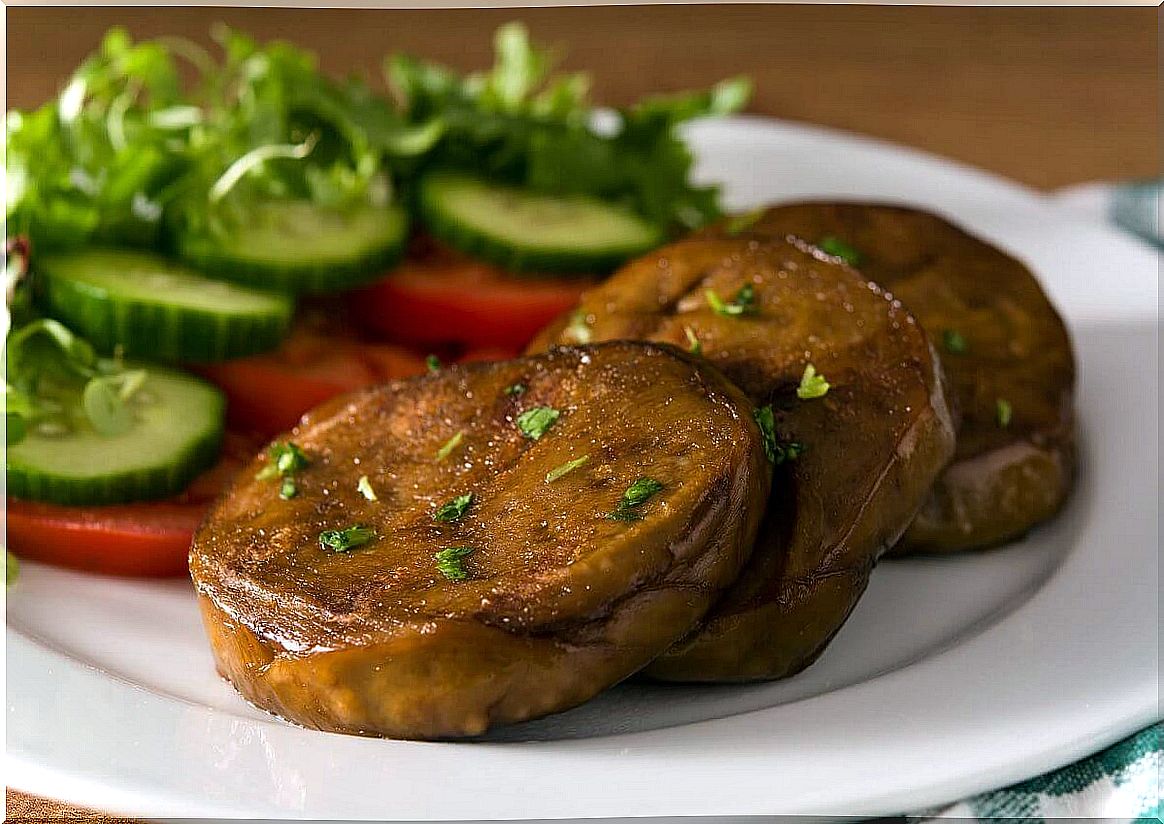
Textured soy protein
Textured soy protein is a product of the processing of soybeans. It is obtained from skim soy flour, i.e. from a protein concentrate. Under the influence of high temperature and pressure, it acquires a fibrous, meat-like structure.
This meat substitute can be of different colors, flavors and appearance. It all depends on the additives. You can buy it dry, processed or frozen. Its nutritional values are as follows:
- Calories : 327.
- Protein : 51.46 grams.
- Fat : 1.22 grams.
- Carbohydrates : 33.92 grams.
- Fiber : 17.5 grams.
- Iron : 9.4 milligrams – 100% of the RDA for men and 50% for women.
- Phosphorus : 674 milligrams.
- Niacin : 2.6 milligrams.
Textured soy protein is half protein. It also contains a lot of fiber and minerals such as iron and phosphorus. In addition, it has a lot of vitamin B, i.e. niacin.
Suitable for making stews, meatballs and cutlets. However, it needs to be properly seasoned. Goes well with vegan burgers, Bolognese sauce or tacos filling.
Jackfruit
Jackfruit (also known as jackfruit ) has been popular in Southeast Asian cuisine since antiquity, but has only recently been used as a meat substitute in the West. It tastes similar to pineapple and other tropical fruits, which is why it is sometimes called the fruit with the flavor of all fruits.
It is best suited for replacing pork on a vegan barbecue. As it is a fruit, it contains a lot of carbohydrates and little protein. Therefore, it is not very suitable as a substitute for animal protein sources. 150 grams of raw jackfruit contains:
- Calories : 143.
- Carbohydrates : 35.1 grams.
- Sugars : 28.8 grams.
- Proteins : 2.6 grams.
- Fat : 1.0 grams.
- Fiber : 2.2 grams.
- Iron : 1.0 milligrams – 13% of the RDA for men and 6% for women.
The high content of simple sugars such as glucose and fructose give this product a fruity aftertaste. It has a moderate amount of fiber and few minerals.
Oat flakes
Oatmeal is suitable for making delicious cutlets. They are made into a mass with the addition of vegetable stock, fat, grated carrots or zucchini and other vegetable proteins.
This product is a good source of protein, complex carbohydrates and soluble fiber as well as beta-glucans which positively influence health. It also provides iron in a similar amount to meat. 100 grams of oatmeal provides:
- Calories: 375.
- Proteins: 12.5 grams.
- Fat: 7.5 grams.
- Carbohydrates: 70 grams ..
- Fiber: 7.5 grams.
- Iron: 3.6 milligrams.
What do you need to know?
Certain vegan meat substitutes have the same amount of protein as meat, but the quality is not the same as they provide less essential amino acids. Moreover, vegans are more likely to be iron deficient.
Pawlak and other experts report that certain vitamins – such as B-12 – are almost absent in meatless diets. Therefore, pregnant women, children and teenagers, and the elderly on a vegan diet should take supplements.
It’s always a good idea to read product labels as some of them contain gluten, eggs, dairy products and additives that are not tolerated by consumers. There are many options, so feel free to choose your favorite one!
